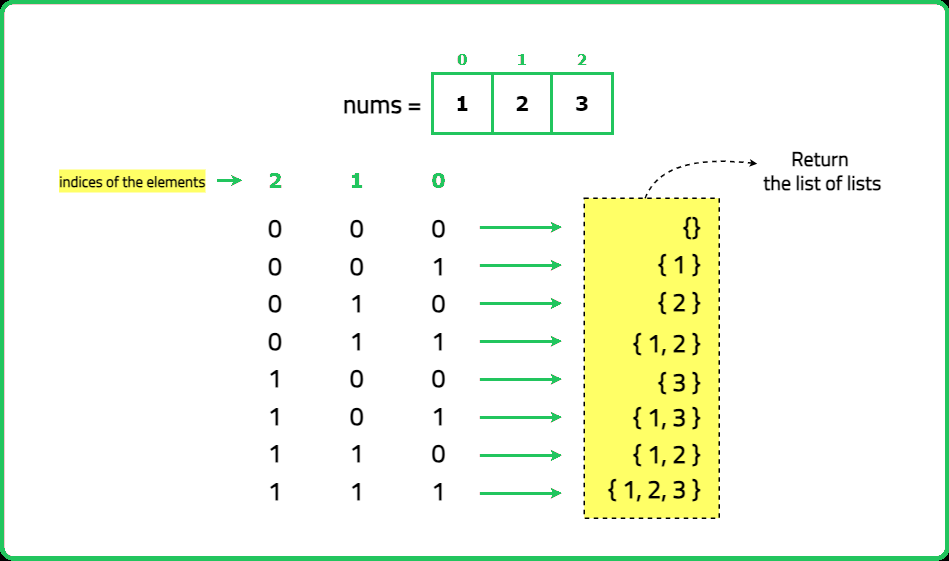Power Set Bit Manipulation
Bit Manipulation
Problems
Medium
- The concept of generating all possible subsets of a set (also known as power set) is commonly used in various realms of software development, particularly in machine learning
- For example, in feature selection for a machine learning model, it's crucial to explore different combinations of features (subsets) to see which ones contribute the most to the predictive model's accuracy
- This is essentially generating the power set of features
- Similarly, it is used in big data analytics, search engines, and data mining for various computation-related tasks involving sets of data
Given an array of integers nums of unique elements. Return all possible subsets (power set) of the array.
Do not include the duplicates in the answer.
Examples:
Input : nums = [1, 2, 3]
Output : [ [ ] , [1] , [2] , [1, 2] , [3] , [1, 3] , [2, 3] , [1, 2 ,3] ]
Input : nums = [1, 2]
Output : [ [ ] , [1] , [2] , [1, 2] ]
Input : nums = [0]
Constraints
- 1 <= nums.length <= 10
- -10 <= nums[i] <= 10
Hints
- "Use a recursive function that explores two choices at each step: (a) Include the current element in the subset. (b) Exclude the current element."
- "Represent each subset as a bitmask of length n, where each bit indicates whether an element is included (1) or excluded (0). Iterate through all numbers from 0 to 2^n−1. For each number, use its binary representation to construct the corresponding subset."
Company Tags
Riot Games
Airbnb
Oracle
Docker
Intel
Qualcomm
Medtronic
Instacart
eBay
Morgan Stanley
Epic Games
HashiCorp
Lyft
PwC
NVIDIA
Flipkart
Rakuten
Roblox
Zoho
Teladoc Health
Dropbox
Splunk
Walmart
Salesforce
DoorDash
Google
Microsoft
Amazon
Meta
Apple
Netflix
Adobe
